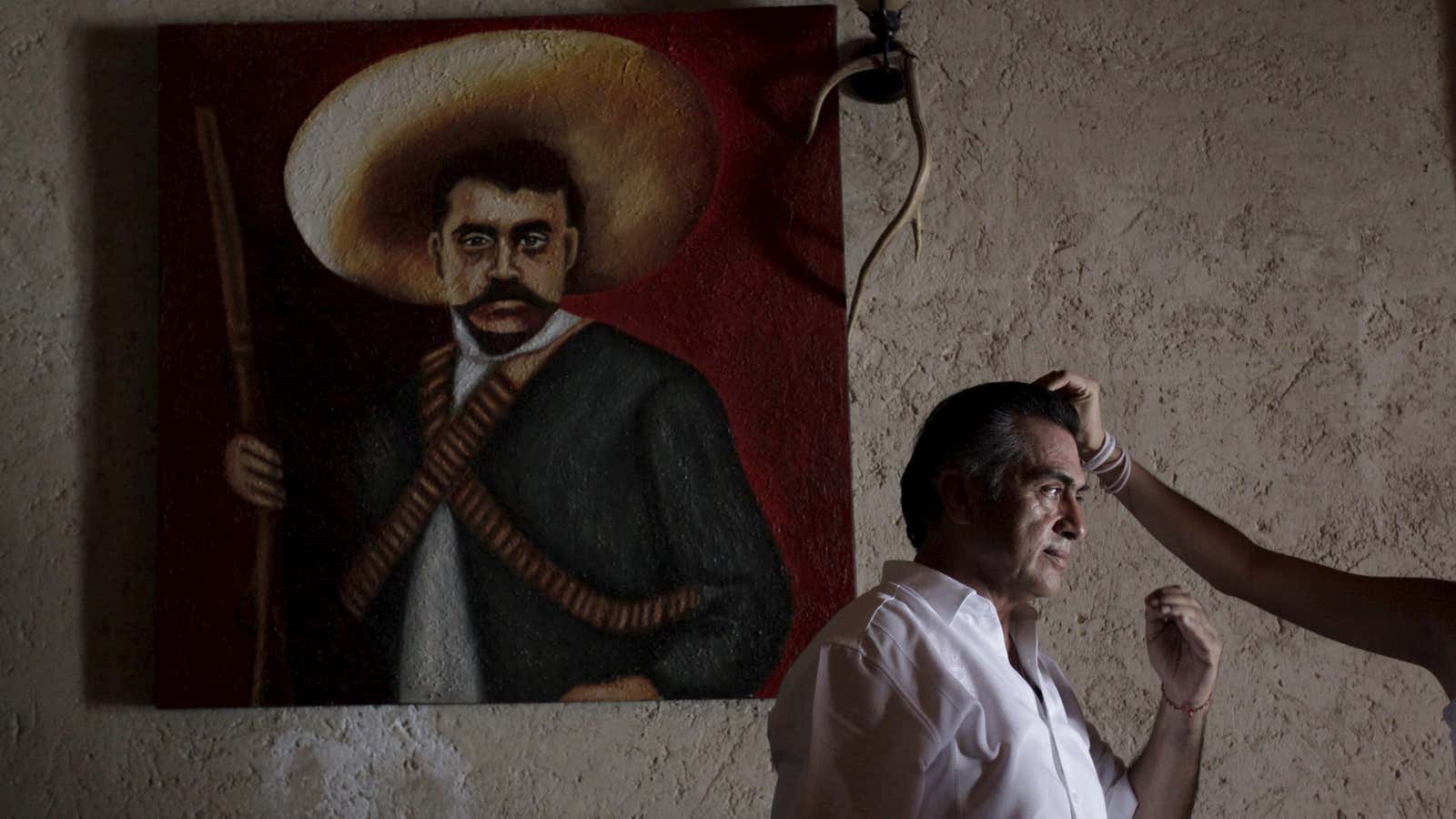President-elect Donald Trump has convinced air-conditioner-maker Carrier not to move an Indiana plant to Mexico. Mexico’s reaction so far: You can keep it.
“The US is not the world,” Jaime Rodríguez, governor of the northern state of Nuevo León, told Mexican radio broadcaster Radio Fórmula (link in Spanish.) “We have a very strong relationship with the US, but we don’t depend on them. They should depend on us.”
Nuevo León is where the new Carrier facility, an expansion of an existing one in the Mexican state, was set to be located. The state had already signed all the necessary permits. But while Rodríguez lamented the change in plans, he said the cancelled deal is one of many that Nuevo León has hammered with foreign companies. Most are from Asia and Europe; only three—now two—are American, he said.
It’s a cavalier attitude—Rodríguez’s nickname is not “El Bronco” for nothing. The US is Mexico’s biggest trading partner by far (Spanish). It’s also its biggest source of foreign investment, by far (Spanish, pdf, pg. 3). The economies of the two countries are intertwined to the point that a single product can contain raw materials and labor from both sides of the border.
But Rodríguez also pointed to other factors Trump should consider if he wants to avoid his nativist tendencies backfiring. By blocking out Mexico, the president-elect might be pushing the country to tighten its already growing ties with Asia. That would only put China—per Trump, the US’s other commercial nemesis—closer to the American market. In fact, Rodríguez just returned from a business-seeking mission (Spanish) in China.
While diversification was already part of Nuevo León’s economic strategy, it makes even more sense under a Trump presidency. “It’s a crisis, but as every crisis, it’s an opportunity,” said state representative Concepción Landa. “It’s making Mexicans look around and not depend on the US so much.”
Blocking American investment in Mexico would also hurt the American economy. The US would lose the job boost that comes from importing Mexican products, many of which are manufactured in American-owned plants south of the border. (About 40% of the value of Mexican exports to the US originates in the US itself as components made in US factories.) The more Mexico exports those products, the more work it creates for those American workers.
“If you try to break that connection, then all economies suffer,” says Eric Farnsworth, vice president of the Americas Society and Council of the Americas, an international business group.
Finally, someone is going to have to pay to convince American firms not to move jobs to Mexico, because a Trump presidency alone doesn’t suddenly erase all the factors that make the country attractive. (In fact, thanks to the peso plunge triggered by Trump’s victory, the exchange rate is looking pretty good for US companies wanting to set up shop in Mexico.) To keep Carrier jobs in Indiana, the state offered an annual $700,000 in tax incentives for several years, according to Fortune. That kind of deal might be harder to strike in places where vice-president-elect Mike Pence is not governor.
It’s too early to tell whether Trump will come around to all these realizations. In the meantime, Nuevo León’s governor says he’s feeling calm. When the radio host asked him if Trump is messing up Nuevo León’s hair, an expression that could be translated as “ruffling” the state’s affairs, he answered unequivocally: Not one bit.
